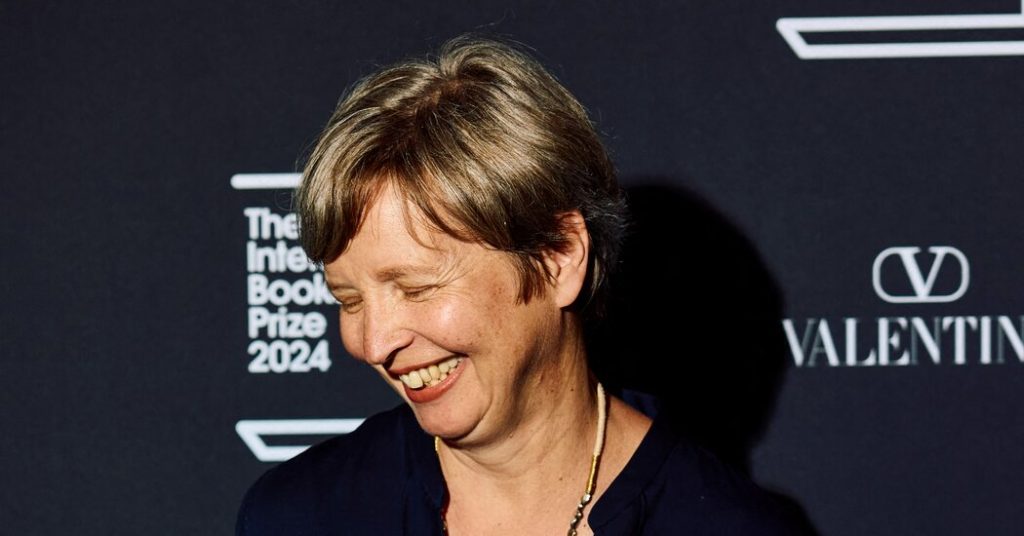Jenny Erpenbeck’s novel, “Kairos,” has won the International Booker Prize, a prestigious award for fiction translated into English. The story follows a torrid love affair in the final years of East Germany, exploring the relationship between a student and a novelist as it unravels against the backdrop of the country’s history before the fall of the Berlin Wall. The judges praised the book for its blend of beauty and discomfort, weaving personal and political themes in a moving and psychological narrative that captures the optimism and subsequent unraveling of the couple’s relationship.
The novel, translated into English by Michael Hofmann, shares the 50,000-pound prize with the translator, and the award was presented at a ceremony at the Tate Modern art museum in London. Eleanor Wachtel, the chair of the judges, noted that “Kairos” stood out among the other shortlisted titles for its unique blend of personal and political insights, making it both a compelling and uncomfortable read. The story delves into themes of trust, optimism, and a descent into a destructive vortex, mirroring the trajectory of East Germany leading up to the collapse of the Berlin Wall.
Following its publication in English last year, “Kairos” received praise from reviewers who hailed Erpenbeck as a powerful and sophisticated novelist with the potential to be a future Nobel Prize laureate in literature. The novel’s emotional depth and subterranean force captivated readers and critics alike, prompting some to read the book more than once. Erpenbeck’s exploration of the aftermath of the Berlin Wall’s collapse offers a different perspective on the idea of freedom, moving beyond the conventional narratives of liberation and exploring the complexities of post-revolutionary society.
Established in 2005, the International Booker Prize recognizes the best novel translated into English each year, with previous winners including Han Kang’s “The Vegetarian” and Olga Tokarczuk’s “Flights.” Jenny Erpenbeck is the first German novelist to win the award, while Michael Hofmann is the first male translator to receive the honor. Erpenbeck’s upbringing in East Germany has deeply influenced her writing, with many of her works set against the backdrop of the country’s history and societal changes, including her award-winning novel “Go, Went, Gone.”
In interviews, Erpenbeck has discussed how the collapse of the Berlin Wall shaped her identity as a writer, inspiring her to grapple with the loss of the familiar system she grew up in. While stories about the fall of the Berlin Wall often focus on themes of freedom, Erpenbeck’s “Kairos” offers a nuanced exploration of what comes after the so-called happy ending. The novel challenges readers to consider the complexities of progress and change, highlighting the lasting impact of historical events on individuals and society as a whole. By intertwining personal narratives with larger political and social themes, Erpenbeck creates a powerful and thought-provoking literary work that resonates with readers across cultures and languages.


